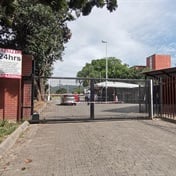
Hitting back, they accuse schemes of unlawful probes, underpayment and ignoring patients’ needs
Medical doctors have hit back against the commonly held narrative that they are the main drivers of fraud, waste and abuse in the private health sector – throwing the blame right back at their accusers, the medical schemes.
The not-so-subtle blame-shifting formed part of discussions held during the Council of Medical Schemes’ inaugural Fraud, Waste and Abuse Summit – held last week at the Sandton Convention Centre.
The two-day gathering was aimed at bringing together health practitioners, medical aids, policy makers and other industry stakeholders to discuss strategies to deal with such misrepresentation – which costs the industry between R22 billion and R25 billion a year.
According to the council’s latest report figures, released last year, the annual claims paid out by schemes in 2017 amounted to R172 billion – and 15% of those claims were as a result of fraud, waste and abuse.
Noticeably absent from the discussion was the Hospital Association of SA – the representative body for the majority of private hospitals in South Africa – to detail the role played by its sector.
According to the council’s report, most of the industry’s healthcare benefits went to covering hospital expenditure amounting to R59 billion.
First to address the attendees was the Special Investigating Unit (SIU) head, advocate Andy Mothibi.
He revealed that in some provinces, such as the Eastern Cape, investigations unearthed how lawyers were colluding with doctors to make fraudulent medico-legal claims, with one lawyer having claimed R90 million for six cases and got doctors to sign off on the cases – yet the injured were actually healthy.
Then Ishmael Mogapi, operations risk manager at the Government Employees Medical Scheme (Gems), added this body’s experience of a fraud committed that was linked to doctors.
He spoke of a psychologist who claimed to have worked 490 hours in a day and reprimanded hospital groups which admitted patients to help them claim back from their cash-back plans.
And Paul Midlane, the general manager of healthcare forensics at Medscheme, cited the example of an obscure, run-down surgery claiming R1 million from the scheme for medicines dispensed in 11 months.
Midlane gave examples of how pharmacies and suppliers also contributed to fraudulent practices in the industry, with one pharmacy having claimed R1.2 million from Medscheme, yet on inspection, its shelves stood almost empty.
But doctors at the conference did not take the finger being pointed at them lying down.
“We do not promote fraud, we actually stand against it,” said Dr Prudence Buthelezi, secretary-general of the National Health Care Professionals Association.
“And we have said to medical aids that ‘if you do suspect our members, open criminal cases’. But also, when it comes to the reimbursement of healthcare practitioners, we are not paid [by schemes] what we are worth. A dentist will be paid R250, a GP R450 and a specialist R700, so we have to look at whether that, too, is not contributing to fraud.
“This issue of designated service providers (DSP) that medical aids work with is also unethical by law as it leads to healthcare professionals being controlled by the medical aid, and not looking at what service would best suit the patient.
“Also, as doctors under that DSP, you have to prescribe the medication that the scheme wants you to … it is about cost for the scheme and not about the patient,” she said.
Dr Elijah Nkosi, chief executive of the Independent Practitioners Association Foundation – representing 5 000 doctors – said medical aid schemes were also guilty of conducting underhanded “probes” of doctors’ practices to avoid paying out their claims.
“Doctors are forced to sign acknowledgments of debt under duress and their claims are held back, yet the numbers they present are thumbsucks. We are against forensic units [in schemes]. If there is an ethical matter against the doctor, report it to our regulator, the Health Professions Council of SA. If it is a criminal matter, report it to the SA Police Service,” he said.
Mogapi denied that Gems conducted probes on doctors’ practices.
Dr Mvuyisi Mzukwa, board vice-chairperson of the SA Medical Association, said the narrative that doctors drive fraud, waste and abuse was incorrect and incomplete as there were a number of other drivers.
“Chief among those drivers are the benefit plans that allow members to bypass their family doctors and result in duplicate services. We caution strongly against this simplistic narrative and call for transparency, fairness and equity in dealing with the matter,” he said.
Marius Smit, the head of forensic services at Discovery Health, also cautioned against only blaming doctors.
“This is not a doctor issue. We need to be careful of that narrative … it includes doctors, member fraud and corporate fraud. It is all evenly spread.
“Obviously, the money component is important in terms of what fraud costs the industry, but there is also a quality of care component. Hospitals are a great place to be if you’re sick; not so much if you’re not,” he said.
At the summit’s conclusion, the various schemes, health practitioners and industry bodies agreed on key definitions related to fraud, waste and abuse, and signed an industry charter pledging to work against them.




 Publications
Publications
 Partners
Partners








